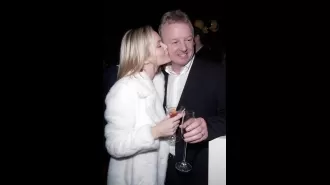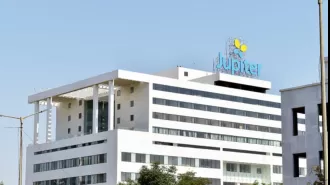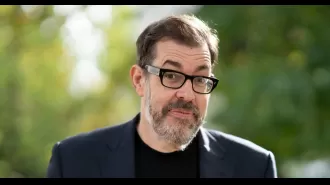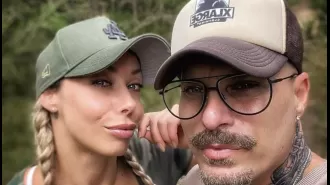I bought chips and my life was forever altered.
I aspire to one day flourish and thrive.
November 25th 2024.
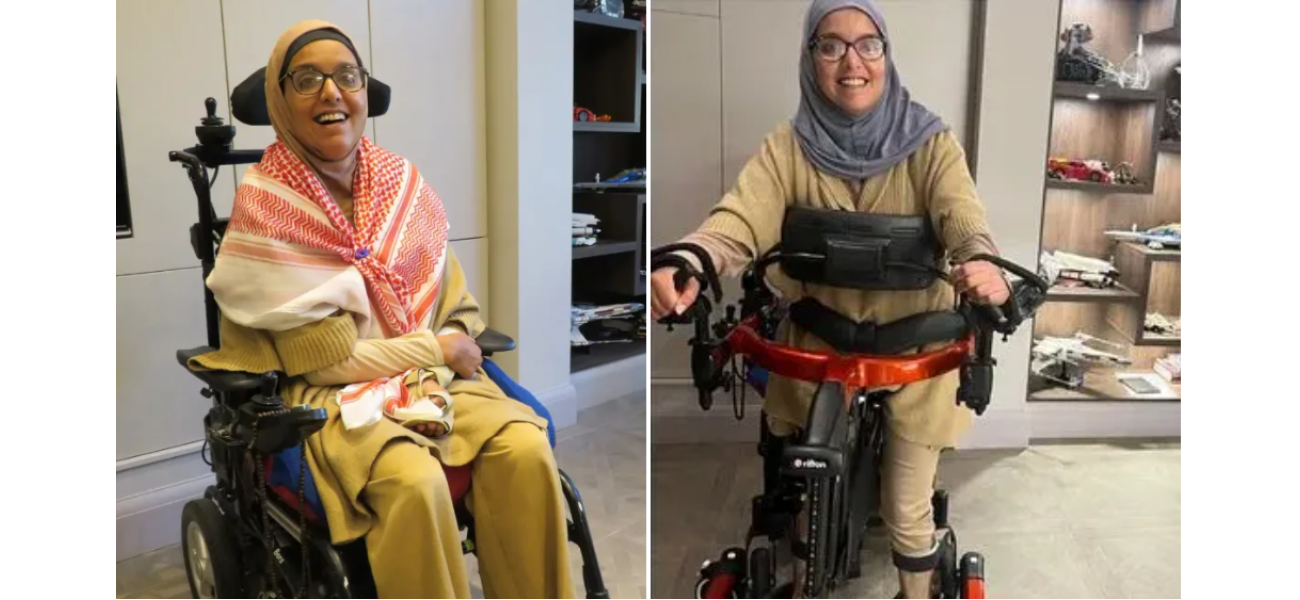
Hannah Mcwann, a 46-year-old mother of four, is not your typical superhero. She enjoys simple things like supporting her favorite soccer team and spending quality time with her family. But her recent accomplishments have been nothing short of extraordinary.
Hannah took on a challenge to walk 1000 steps to raise money for injured individuals in Gaza. This may seem like a small feat for some, but for Hannah, who has been living with a brain injury since a devastating bus accident in 2017, it was a monumental task that required immense physical and mental strength. And she did it all with a red and white keffiyeh around her neck, proudly displaying her support for Palestine.
Growing up with Palestine always close to her heart, Hannah felt a deep connection to the people of Gaza who, like her, have suffered traumatic brain injuries but do not have access to the same medical care and resources she had. This inspired her to take on the challenge and raise funds for Human Appeal’s Gaza Emergency Appeal.
On December 1, 2017, at 11:08am, Hannah's life changed forever when she was hit by a bus while crossing the street near her home in Kingston. The accident left her unable to walk or speak. Her husband, Mostahfiz, vividly remembers the day and the moments leading up to it. He was at home with their youngest son when Hannah was supposed to pick him up from nursery. When she didn't return, Mostahfiz received a call from the nursery, informing him that no one had picked up their son. That's when he learned about the accident and rushed to the hospital to be by his wife's side.
Hannah was airlifted to St George's Hospital and underwent surgery for her brain injury. Mostahfiz was told that she had actually walked around in a dazed state after being hit by the bus, but paramedics noticed blood in her eyes and ears and immediately induced her into a coma. When she woke up four months later, she was in a new world - one where she couldn't talk or move.
With the support of her family and the NHS, Hannah started her journey towards recovery. She was eventually moved to the Royal Hospital for Neuro-disability, where she worked tirelessly to regain the skills she lost. It was a challenging and emotional journey, but Hannah persevered and made small yet significant progress each day. She had to relearn basic tasks like chewing and using a pen to communicate.
In a heartwarming moment captured on camera, Hannah wrote a message to her son, Salahaddin, who was preparing for exams. It was the first time he could understand her writing, and she was overcome with emotion. Speaking is still a challenge for Hannah due to dysarthia, a condition that weakens her mouth muscles, but she is grateful for every word she can utter. Her husband sits by her side, helping her communicate when needed.
For Hannah, her biggest achievement is simply being able to talk again. It's a reminder of how far she has come and the strength she possesses. She credits her family and faith for getting her through each day and is grateful for the support she has received. Hannah's determination and resilience are truly extraordinary, and she is an inspiration to many.
Hannah Mcwann, a loving mother and avid supporter of Liverpool FC, may seem like your average mom. She enjoys playing Scrabble with her family and cherishes their Sunday Roast tradition. However, her recent accomplishments go far beyond the ordinary.
At the age of 46, Hannah took on a 1000-step challenge to raise money for Human Appeal's Gaza Emergency Appeal. This may not seem like a difficult task for most people, but for Hannah, it required an immense amount of mental and physical strength. You see, Hannah has been living with a brain injury since a devastating bus crash in 2017.
"I have always had a special place in my heart for Palestine," Hannah tells Metro, wearing a red and white keffiyeh, with her husband Mostahfiz by her side. "There are people in Gaza who, like me, have suffered from traumatic brain injuries, but do not have access to the same resources and care that I did."
On December 1, 2017, at 11:08 am, Hannah's life changed in the blink of an eye. She was hit by a bus while crossing the street near her home in Kingston. Although she has no memory of the accident, her husband remembers the day vividly.
"I was at home, feeling under the weather and hadn't gone to work," Mostahfiz shares with Metro. "Hannah was supposed to pick up our youngest son from nursery and stop by Sainsbury's on the way home to grab some frozen chips. When she didn't come back after a while, I started to get worried. Then the nursery called to let me know that no one had picked up our son."
As Mostahfiz rushed out of the house, he was stopped by a police officer who informed him that Hannah had been airlifted to the hospital. She had gotten up and walked around in a dazed state after being hit, but paramedics had noticed blood in her eyes and ears, and immediately induced her into a coma knowing that she had suffered a brain injury. By the time Mostahfiz arrived at the hospital, Hannah was already in surgery.
In a blog post, Hannah recalls an early visit from her then ten-year-old daughter, Sara, and her sons Zayd, 3, Owais, 5, and Salahaddin, 12, as retold by her husband. "My daughter could only handle being in my presence for five minutes," Hannah writes. "Who could blame her? I looked like Frankenstein. My head was swollen and bruised. My husband waited a week until my little boys came to see me. By then, my face wasn't as swollen, and Owais was fascinated by all the wires and machines connected to me. A kind nurse named Ian took the time to explain each wire and its purpose, which reassured Owais that I was in good hands. It's amazing how a small gesture can make such a big impact."
Hannah's surgery took place during what is known as "the golden hour," the critical time period after a severe brain injury when immediate medical attention can greatly increase the chances of survival. Doctors removed a portion of her skull to allow room for her brain to swell and drain away trapped blood. Mostahfiz was warned that she might not make it through the next 72 hours.
Thankfully, Hannah did survive, but with a Traumatic Brain Injury. As she slept in her coma, her family never left her side. Her mother would even trim her nails, and Mostahfiz would play their favorite classical music, such as the Lord of the Rings soundtrack.
After waking up in March 2018, four months after the accident, Hannah was thrust into a new world. She could barely move and couldn't speak at all. A few months later, she was transferred to the Royal Hospital for Neuro-disability in south-west London, where she began the long road to recovery. She had to relearn basic skills like chewing by sucking on cola bottles through a muslin cloth and communicating through a whiteboard and pen.
In a heartwarming moment captured on camera, Hannah wrote "I will make dua for you" (meaning "I will pray for you") for her eldest son, Salahaddin, who had exams coming up. After failing to understand her previous attempts, Salahaddin finally comprehended her scribbled words on the third try, and Hannah couldn't help but burst into tears of joy.
"My biggest accomplishment has been regaining the ability to speak," Hannah, a former history teacher, says. "For three years, I couldn't utter a single word. My initial goal was just to gain a bit of independence, which started with using paper and pen in the hospital. I had lost control and dexterity in my hand, so my family and nurses had to decipher my writing. When they finally understood me, it would bring tears to my eyes."
Due to a condition called dysarthria, which weakens her mouth muscles, Hannah now speaks slowly and with a lower tone than before the accident. Mostahfiz sits by her side, gently translating any answers that may be difficult to understand.
Through it all, Hannah credits her family and faith for getting her through each day. She is forever grateful for the support and resources that she had access to during her recovery, and it drives her to give back through endeavors like the 1000-step challenge for Human Appeal's Gaza Emergency Appeal. Hannah's journey has been nothing short of extraordinary, and she continues to inspire and amaze those around her with her strength and determination.
Hannah took on a challenge to walk 1000 steps to raise money for injured individuals in Gaza. This may seem like a small feat for some, but for Hannah, who has been living with a brain injury since a devastating bus accident in 2017, it was a monumental task that required immense physical and mental strength. And she did it all with a red and white keffiyeh around her neck, proudly displaying her support for Palestine.
Growing up with Palestine always close to her heart, Hannah felt a deep connection to the people of Gaza who, like her, have suffered traumatic brain injuries but do not have access to the same medical care and resources she had. This inspired her to take on the challenge and raise funds for Human Appeal’s Gaza Emergency Appeal.
On December 1, 2017, at 11:08am, Hannah's life changed forever when she was hit by a bus while crossing the street near her home in Kingston. The accident left her unable to walk or speak. Her husband, Mostahfiz, vividly remembers the day and the moments leading up to it. He was at home with their youngest son when Hannah was supposed to pick him up from nursery. When she didn't return, Mostahfiz received a call from the nursery, informing him that no one had picked up their son. That's when he learned about the accident and rushed to the hospital to be by his wife's side.
Hannah was airlifted to St George's Hospital and underwent surgery for her brain injury. Mostahfiz was told that she had actually walked around in a dazed state after being hit by the bus, but paramedics noticed blood in her eyes and ears and immediately induced her into a coma. When she woke up four months later, she was in a new world - one where she couldn't talk or move.
With the support of her family and the NHS, Hannah started her journey towards recovery. She was eventually moved to the Royal Hospital for Neuro-disability, where she worked tirelessly to regain the skills she lost. It was a challenging and emotional journey, but Hannah persevered and made small yet significant progress each day. She had to relearn basic tasks like chewing and using a pen to communicate.
In a heartwarming moment captured on camera, Hannah wrote a message to her son, Salahaddin, who was preparing for exams. It was the first time he could understand her writing, and she was overcome with emotion. Speaking is still a challenge for Hannah due to dysarthia, a condition that weakens her mouth muscles, but she is grateful for every word she can utter. Her husband sits by her side, helping her communicate when needed.
For Hannah, her biggest achievement is simply being able to talk again. It's a reminder of how far she has come and the strength she possesses. She credits her family and faith for getting her through each day and is grateful for the support she has received. Hannah's determination and resilience are truly extraordinary, and she is an inspiration to many.
Hannah Mcwann, a loving mother and avid supporter of Liverpool FC, may seem like your average mom. She enjoys playing Scrabble with her family and cherishes their Sunday Roast tradition. However, her recent accomplishments go far beyond the ordinary.
At the age of 46, Hannah took on a 1000-step challenge to raise money for Human Appeal's Gaza Emergency Appeal. This may not seem like a difficult task for most people, but for Hannah, it required an immense amount of mental and physical strength. You see, Hannah has been living with a brain injury since a devastating bus crash in 2017.
"I have always had a special place in my heart for Palestine," Hannah tells Metro, wearing a red and white keffiyeh, with her husband Mostahfiz by her side. "There are people in Gaza who, like me, have suffered from traumatic brain injuries, but do not have access to the same resources and care that I did."
On December 1, 2017, at 11:08 am, Hannah's life changed in the blink of an eye. She was hit by a bus while crossing the street near her home in Kingston. Although she has no memory of the accident, her husband remembers the day vividly.
"I was at home, feeling under the weather and hadn't gone to work," Mostahfiz shares with Metro. "Hannah was supposed to pick up our youngest son from nursery and stop by Sainsbury's on the way home to grab some frozen chips. When she didn't come back after a while, I started to get worried. Then the nursery called to let me know that no one had picked up our son."
As Mostahfiz rushed out of the house, he was stopped by a police officer who informed him that Hannah had been airlifted to the hospital. She had gotten up and walked around in a dazed state after being hit, but paramedics had noticed blood in her eyes and ears, and immediately induced her into a coma knowing that she had suffered a brain injury. By the time Mostahfiz arrived at the hospital, Hannah was already in surgery.
In a blog post, Hannah recalls an early visit from her then ten-year-old daughter, Sara, and her sons Zayd, 3, Owais, 5, and Salahaddin, 12, as retold by her husband. "My daughter could only handle being in my presence for five minutes," Hannah writes. "Who could blame her? I looked like Frankenstein. My head was swollen and bruised. My husband waited a week until my little boys came to see me. By then, my face wasn't as swollen, and Owais was fascinated by all the wires and machines connected to me. A kind nurse named Ian took the time to explain each wire and its purpose, which reassured Owais that I was in good hands. It's amazing how a small gesture can make such a big impact."
Hannah's surgery took place during what is known as "the golden hour," the critical time period after a severe brain injury when immediate medical attention can greatly increase the chances of survival. Doctors removed a portion of her skull to allow room for her brain to swell and drain away trapped blood. Mostahfiz was warned that she might not make it through the next 72 hours.
Thankfully, Hannah did survive, but with a Traumatic Brain Injury. As she slept in her coma, her family never left her side. Her mother would even trim her nails, and Mostahfiz would play their favorite classical music, such as the Lord of the Rings soundtrack.
After waking up in March 2018, four months after the accident, Hannah was thrust into a new world. She could barely move and couldn't speak at all. A few months later, she was transferred to the Royal Hospital for Neuro-disability in south-west London, where she began the long road to recovery. She had to relearn basic skills like chewing by sucking on cola bottles through a muslin cloth and communicating through a whiteboard and pen.
In a heartwarming moment captured on camera, Hannah wrote "I will make dua for you" (meaning "I will pray for you") for her eldest son, Salahaddin, who had exams coming up. After failing to understand her previous attempts, Salahaddin finally comprehended her scribbled words on the third try, and Hannah couldn't help but burst into tears of joy.
"My biggest accomplishment has been regaining the ability to speak," Hannah, a former history teacher, says. "For three years, I couldn't utter a single word. My initial goal was just to gain a bit of independence, which started with using paper and pen in the hospital. I had lost control and dexterity in my hand, so my family and nurses had to decipher my writing. When they finally understood me, it would bring tears to my eyes."
Due to a condition called dysarthria, which weakens her mouth muscles, Hannah now speaks slowly and with a lower tone than before the accident. Mostahfiz sits by her side, gently translating any answers that may be difficult to understand.
Through it all, Hannah credits her family and faith for getting her through each day. She is forever grateful for the support and resources that she had access to during her recovery, and it drives her to give back through endeavors like the 1000-step challenge for Human Appeal's Gaza Emergency Appeal. Hannah's journey has been nothing short of extraordinary, and she continues to inspire and amaze those around her with her strength and determination.
[This article has been trending online recently and has been generated with AI. Your feed is customized.]
[Generative AI is experimental.]
0
0
Submit Comment

